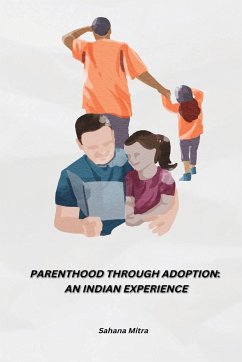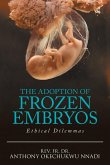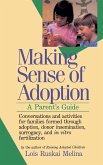Adoption as a family form has undergone a paradigm shift in India. In the past, adoption was predominantly governed by kinship adoptions and it gradually developed to become more open and acceptable to non-relative adoptions . Exploring the legislative changes and evolving cultural notions in the field of adoption over recent years, this research work examined the influence of various socio-cultural-psychological aspects on parenthood through adoption. For this purpose, the experiences of parents across three phases of adoption were studied: pre- adoption, during adoption and post adoption. A qualitative approach was applied, wherein a small sample of adoptive parents were selected from middle class and lower middle class families of the Mumbai area using the method of purposive sampling. The sample included adoptive parents in the age group of 27-55 years, who were married, belonged to any caste/community and who only had adopted children. The sample consisted of only those families where the child was placed for adoption prior to 2 years of age, was living with the parents for a minimum of 5-7 years and where the child was not older than 12 years. This homogeneous group of parents was selected from the agencies recognized by CARA (Central Adoption Resource Authority). Based on these criteria, seven adoptive families were studied and analysed using phenomenological methodology, which gave a coherent description of participants experiences of adoption: what the experiences of the parents in this adoptive journey were and how they experienced it. For the three phases of adoption, separate interview guides were prepared and the data was collected using in-depth interviews. All the interviews were jointly constructed couple interviews . Another aim of the study was to understand the kinds of support systems available and utilized by adoptive parents at agency, government and community level at pre- , during- and post- phases of adoption.








